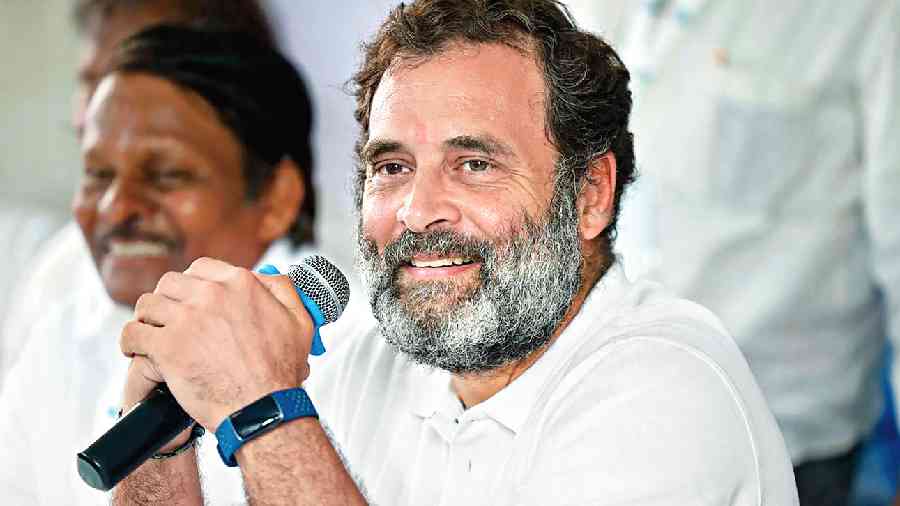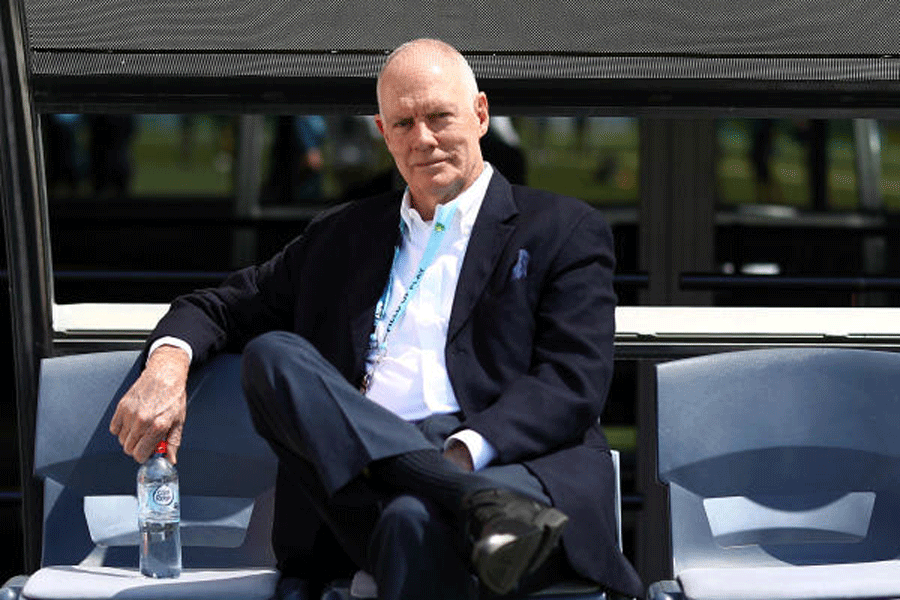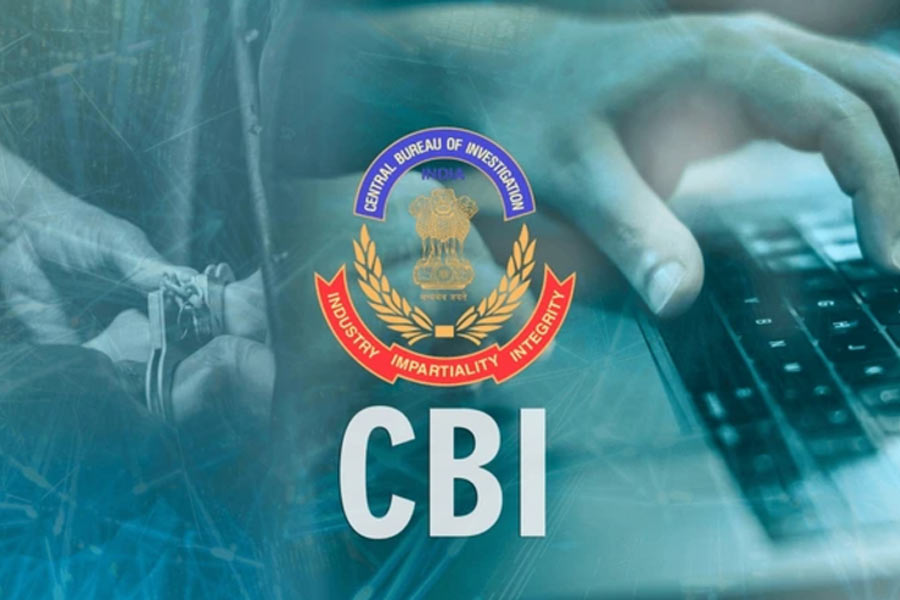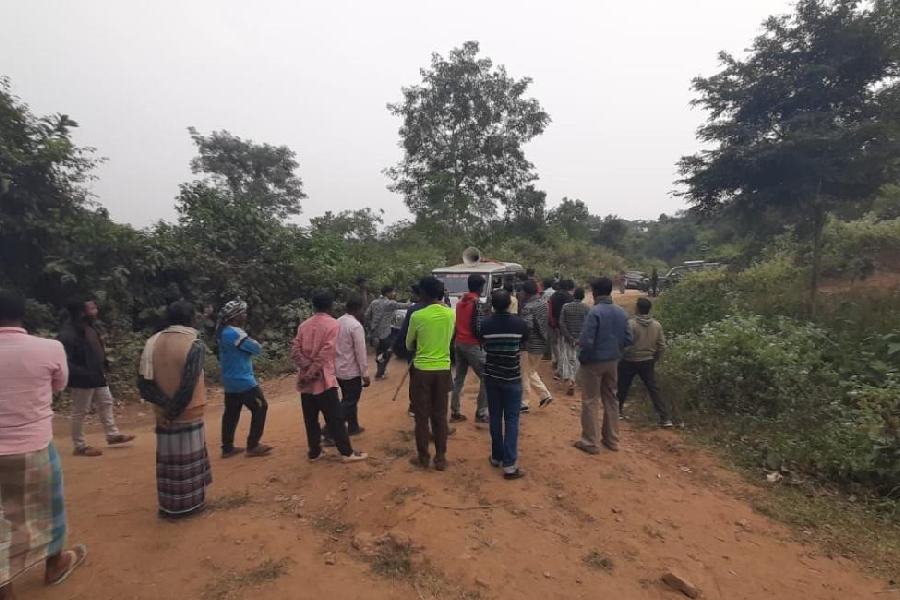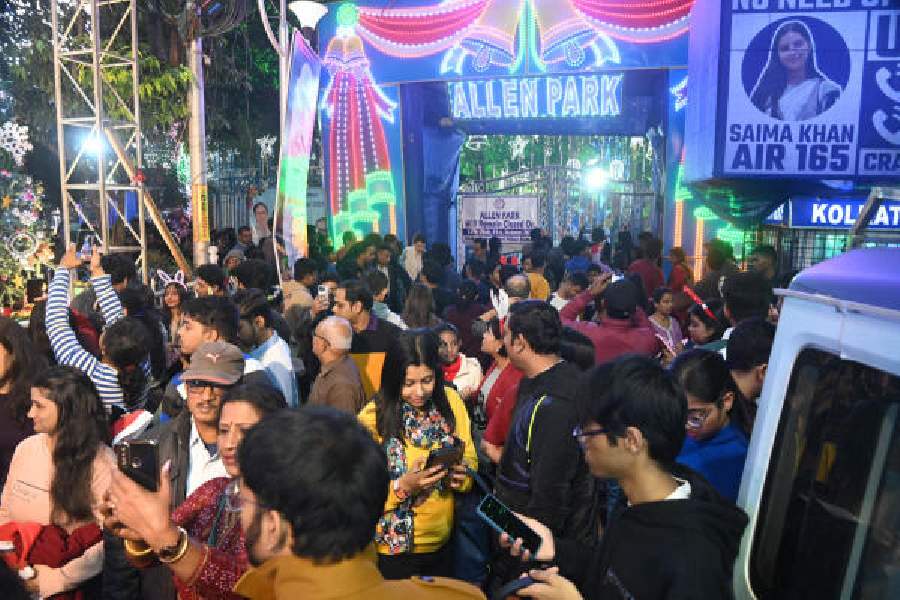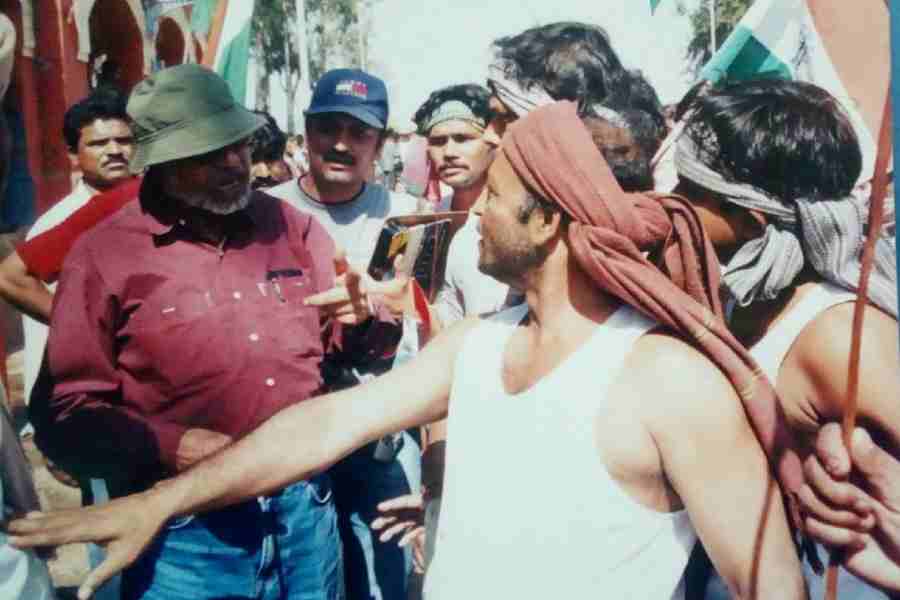Rahul Gandhi on Monday joined the electioneering in Gujarat, with Congress leaders portraying him as a moral force dedicated to uniting India and flagging its real concerns amid efforts at obfuscation by a powerful propaganda machine.
While Gujarat Congress president Jagdish Thakor hailed Rahul as “leader of a great humanitarian mission that is dedicated to uniting India”, Rajasthan chief minister Ashok Gehlot said Rahul had committed himself to protecting India at a time its democracy faced a grave challenge.
Gehlot said Rahul’s mission had generated new hope in an atmosphere of fear and cynicism. Rahul’s deep involvement with the Bharat Jodo Yatra was on display as he spent most of his time recalling how his conversations with farmers and the youth, small businessmen and social activists had brought out the pervasive distress and pain in the country.
He said people were asking searching questions about the Narendra Modi government’s pro-rich policies and its apathy in tackling unemployment and high prices, and about hatred and divisive politics. Rahul said the idea of the Yatra had come from Mahatma Gandhi’s philosophy and spoke of the massive participation it was drawing and the love people were showering on the Yatris.
“The media doesn’t show the Yatra. It is like a river of millions of people flowing through the country, uncontaminated by caste or religious hatred, class or gender discrimination,” he said.
Rahul largely avoided direct political criticism of the BJP at his first public meeting in Surat but ripped into the Prime Minister’s politics at Rajkot. However, he focused mainly on national issues. Both meetings drew large crowds.
“The note-bandi, the flawed GST and the unplanned lockdowns during the Covid pandemic were not wrong policies, they were weapons for an attack on the small and medium industries and traders to clear the path for a takeover by big industrialists,” Rahul said at Rajkot.
“The idea is to allow three-four industrialists to capture everything — airports, ports, power, telecom, agriculture, retail…. The nation’s wealth is being handed over to them.”
He then returned to his Yatra experience: “I met thousands of young boys and girls who are worried about their future. Educated youth are doing pizza delivery and are working as cab drivers. Farmers are distressed as they don’t get good prices for their crop. You see the prices of petrol and diesel --- one (LPG) cylinder, which cost Rs 450, is now Rs 1,100. We don’t want two Indias – one of the rich monopolising every sector and the other struggling for survival.”
Although Rahul had refused to comment on the Morbi bridge collapse in the immediate aftermath of the October 30 tragedy, on Monday he said: “Unanswered questions are there after the death of around 150 people. Small workers were arrested but those actually responsible for the accident are being protected because they are close to power. Even the FIR doesn’t name them.”
In Surat, though, Rahul appeared hardly in campaign mode. He did not mention how the incumbent government in Gujarat came into being after a purge of the previous ministry following a public outcry over Covid mismanagement. Nor did he refer to the Morbi bridge collapse or Modi, who had been his solitary target in the last election.
Instead of directly highlighting local issues, he referred to how he had during the Yatra been able to glimpse the deep frustration and pain that afflicted people.
Without mentioning the Covid mayhem in Gujarat, he said: “Yesterday (in Maharashtra), one boy came to me while we were walking and started crying. He said he had lost his entire family to the coronavirus, recalling how there was no medical help available. He is not alone; there are lakhs of people like him.”
It was apparent that the rigours and the unique experience of the Yatra had added gravitas and a political heft to Rahul’s personality, but the incisive attacks on Modi that had distinguished his past speeches were missing.
It’s unclear whether the near-silence on local issues was a deliberate strategy to deny Modi an opportunity to distract people with an emotive discourse, or whether Rahul’s immersion in the Yatra made it difficult for him to change gears suddenly.
His speeches on Monday, however, seemed very different from the high-voltage campaign he had run during the 2017 Assembly elections.
In Surat, there was a massive gathering of tribals unhappy with the BJP government --- a section of voters the Congress is relying heavily on. Rahul recalled his family’s, particularly Indira Gandhi’s, relations with tribal communities and objected to the BJP calling them “Vanvasi” (forest dwellers) instead of “Adivasi” (original inhabitants).
He accused the Modi government of weakening the legal framework that protected the tribal communities’ rights.
State Congress leaders and election-in-charge Gehlot made focused attacks on the BJP, elaborating on how the party had ruined Gujarat with its pro-rich policies.
Gehlot said the RSS-BJP instigated people to disturb harmony instead of solving their problems. Recalling how the Congress had got close to the majority mark last time, he said: “Don’t fall for emotive issues. Modi is lowering the dignity of the Prime Minister’s position by campaigning so intensely; he comes to Gujarat every week.”


